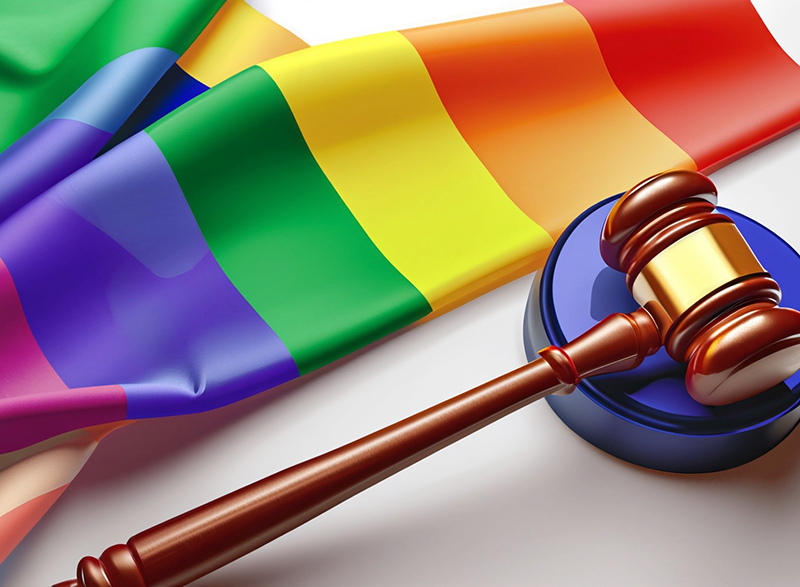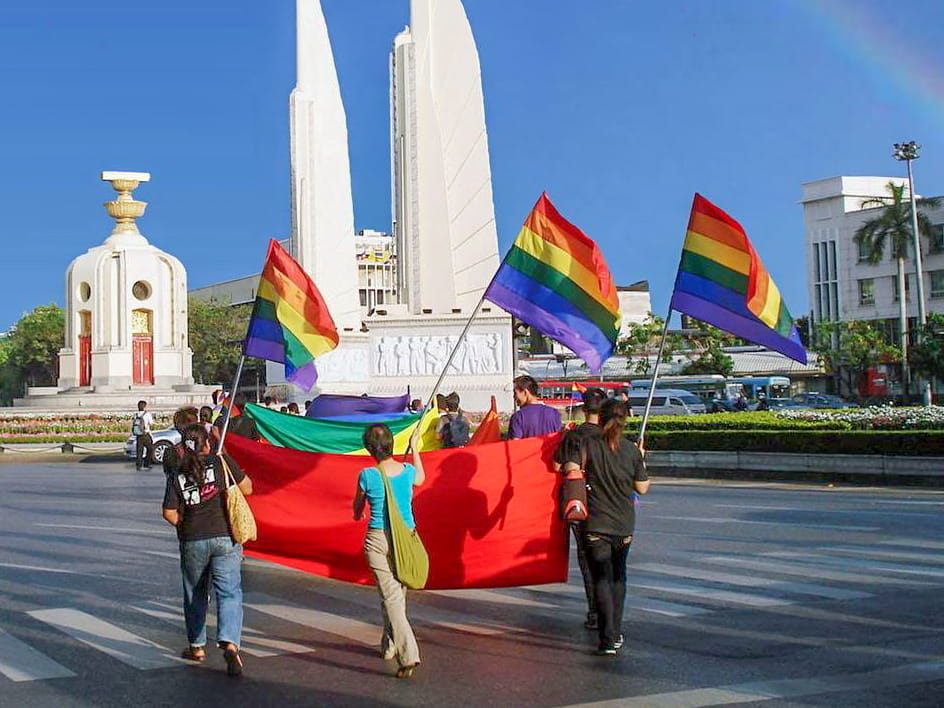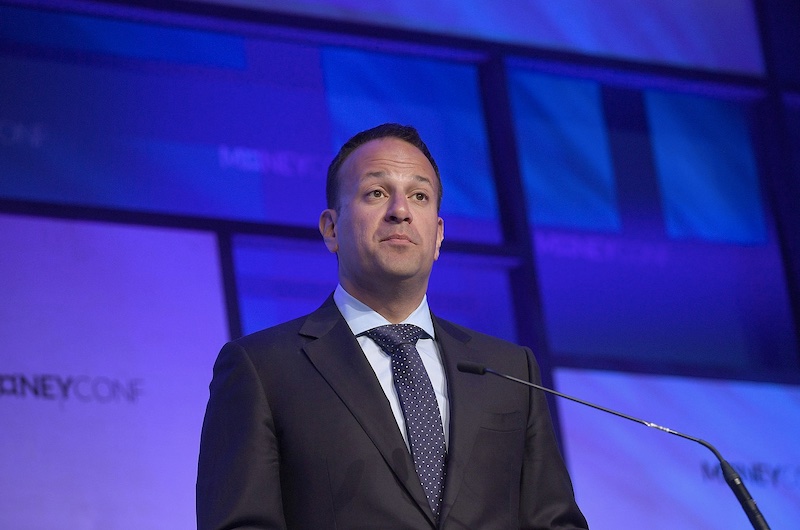The Supreme Court’s surprise “watershed moment” for marriage equality

No one could have predicted that Oct. 6, 2014 would become one of the most significant days in the history of the marriage-equality movement. But shortly after 9:30 Monday morning in Washington, it became that when the U.S. Supreme Court paved the way for legalizing same-sex marriage in an additional 11 states.
There were seven petitions before the nation’s highest court asking the Supreme Court justices to hear cases challenging same-sex marriage bans in five states: Utah, Oklahoma, Virginia, Indiana and Wisconsin. U.S. district courts had struck down bans in each of those states — decisions that were later upheld by the 4th Circuit, 7th Circuit and 10th Circuit Courts of Appeals.
In their petitions before the court, opponents and supporters of same-sex marriage alike argued that a patchwork of states was developing across the nation, with some that recognized the legal marriages of same-sex couples and others that did not. Federal benefits had been bestowed to married same-sex couples in states like Utah, where same-sex marriages had been allowed to proceed before being placed on hold, but state benefits were still denied. In an unusual move, plaintiffs in each of the five cases filed their own petitions before the Supreme Court asking their cases be heard, despite winning at the appellate court level. A national resolution was needed to clarify whether states can constitutionally define marriage as between a man and a woman.
“[T]he advocates on both sides of Utah’s litigation are experienced and capable. And the harm in waiting is significant, regardless of which side prevails,” the state of Utah’s petition read. “Either thousands of couples are being denied their constitutional right to marry, or millions of voters are being disenfranchised of their fundamental right to retain the definition of marriage that has existed since before the People ratified the United States Constitution. This Court should grant the petition and answer, once and for all, the important question presented.”
On Monday, the Supreme Court announced they would not answer that question — at least not quite in the fashion some had hoped for. In an order list released one week after the justices met behind closed doors to consider all five cases at their Sept. 29 conference, the high court denied the petitions for writ of certiorari in all five cases. In so doing, the justices allowed the lower court rulings to stand, thus invalidating same-sex marriage bans in Utah, Oklahoma, Virginia, Indiana and Wisconsin. Hours later, stays issued by the 4th, 7th and 10th Circuit Courts of Appeals terminated stays in the five states, allowing same-sex marriages to proceed. Utah Gov. Gary Herbert (R) said he was disappointed by the decision, but that he has ordered state officials to abide by it. Wisconsin Gov. Scott Walker (R) said the state would uphold the decision as the law of the land. “For us, it’s over in Wisconsin,” Walker said, according to the Associated Press.
But that wasn’t all. By letting those rulings stand, said Jon Davidson of Lambda Legal, “the lower courts where there are cases pending in those circuits will soon also issue orders allowing same-sex couples to marry because they have to follow the rulings of their courts of appeals. And that means that we should see orders soon in Colorado, Kansas, North Carolina, South Carolina, West Virginia and Wyoming and that will bring us up to 30 states, plus the District of Columbia, where same-sex couples will very soon be able to marry.”
For the first time, a majority of states — 30, plus D.C. — will recognize the right of same-sex couples’ to marry, dispelling a talking point long used by same-sex marriage opponents that a majority of states ban same-sex marriage. Sixty percent of the U.S. population will now live in a marriage equality state. Although it is not yet clear when same-sex marriages may begin in Colorado, Kansas, North Carolina, South Carolina, West Virginia and Wyoming, they could commence within days.
“We have consistently maintained that we will abide by the Supreme Court’s determination on the constitutionality of marriage laws. By choosing not to take up the matter, the court has left the 10th Circuit ruling in place,” stated Colorado Attorney General John Suthers, a Republican. “We expect the 10th Circuit will issue a final order governing Colorado very shortly. Once the formalities are resolved, clerks across the state must begin issuing marriage licenses to all same-sex couples.”
In the year since the Supreme Court issued a sweeping 5-4 decision finding unconstitutional Section 3 of the federal Defense of Marriage Act (DOMA), which defined marriage as between a man and a woman, federal judges nominated by both Democratic and Republican presidents have overturned same-sex marriage bans in Utah, Ohio, Oklahoma, Kentucky, Idaho, Illinois, Indiana, Michigan, Pennsylvania, Tennessee, Texas, Virginia, Oregon, Wisconsin, Indiana, Colorado and Florida. Federal appeals courts have upheld such rulings in Utah, Oklahoma, Virginia, Indiana and Wisconsin, which were all allowed to stand by the Supreme Court today. State courts in Arkansas, New Jersey, New Mexico, Colorado and Florida have also sided with marriage equality. Only one federal judge has upheld a state ban on same-sex marriage, in Louisiana, and a state judge in Tennessee found that state’s ban constitutional. If the Supreme Court justices disagreed with the near universal interpretation by judges across the country of the broad arguments about due process and equal protection in the Windsor case, they could have used the cases before them as an opportunity to set the record straight. They did not.
According to James Esseks, director of the ACLU Lesbian Gay Bisexual and Transgender Project and part of the legal team that challenged Virginia’s same-sex marriage ban, Monday’s decisions proved to be a “watershed moment for the entire country.”
“I didn’t think they would do what they’ve now done, but now that they’ve done it it’s a wonderful advance,” Esseks said. “It means that we get equality on the ground for same-sex couples more quickly in a whole bunch of places and also sends a signal to all the other judges in all the other states that are out there of where the Supreme Court may well be on this issue. And I think that’s going to get us to marriage in all 50 states very quickly.”
Ted Olson, co-counsel for the plaintiffs in the Virginia same-sex marriage case, was hesitant to speculate on the message the Supreme Court’s decision sends, but noted one possibility.
“It does seem to suggest, if I was a federal judge, I would read today’s decision as saying that the opponents, if they still exist, on the Supreme Court of marriage equality have decided they don’t want to get into this and they sort of feel that the federal judges — one after the other, after the other, after the other — are getting it right and at this point they ought to just leave it alone,” Olson said during a phone call with reporters. “We believe, those of us who have been involved in this effort, that the Supreme Court having decided not to overturn or not to even review the decisions of these circuit courts ultimately will grant that same right and that same privilege to people all over the United States.”
For the celebrated conservative attorney who won Bush v. Gore, served as President George W. Bush’s solicitor general and successfully challenged California’s same-sex marriage ban, Olson said today’s unexpected development was of particular significance: “To see the United States Supreme Court recognize in this way the love of these individuals and the happiness that they will soon be able to experience is the highlight of my life.”
But while an additional 51 million Americans will now live in marriage equality states, millions of others still will not.
“[W]e are one country, with one Constitution, and the Court’s delay in affirming the freedom to marry nationwide prolongs the patchwork of state-to-state discrimination and the harms and indignity that the denial of marriage still inflicts on too many couples in too many places,” Evan Wolfson, founder and president of Freedom to Marry, said in a statement.
It remains uncertain if further same-sex marriage cases could make it before the Supreme Court this term. Two appeals courts have heard arguments in cases challenging same-sex marriage bans but have not yet rendered judgement. In September, the 9th Circuit Court of Appeals considered same-sex marriage bans in Idaho, Nevada, as well as Hawaii, although the Hawaii ban is defunct since same-sex marriage was legalized by the state Legislature. That court seemed likely to strike down the bans.
With no federal appeals court having upheld a same-sex marriage ban, there exists no split among the circuit courts that some experts believe could encourage the justices to consider the issue and resolve once and for all. That could change when the 6th Circuit Court of Appeals weighs in. When considering same-sex marriages bans in Michigan, Ohio, Tennessee and Kentucky in August that court appeared most skeptical of striking down such bans. Eventually, advocates insist, the Supreme Court must address the issue.
“Any time same-sex couples are extended marriage equality is something to celebrate, and today is a joyous day for thousands of couples across America who will immediately feel the impact of today’s Supreme Court action,” said Chad Griffin, president of the Human Rights Campaign, in a statement. “But let me be clear, the complex and discriminatory patchwork of marriage laws that was prolonged today by the Supreme Court is unsustainable. The only acceptable solution is nationwide marriage equality and we recommit to ourselves to securing that ultimate victory as soon as possible.”
According to Griffin, there is “no reason under the sun” for federal courts not to fast-track all pending cases challenging state bans on same-sex marriage. “Every argument has been made, every legal dispute has been heard, time and time again—the only thing left is the continued suffering of committed and loving gay and lesbian couples from Mississippi to Montana who are still waiting for justice,” Griffin said. “They cannot wait anymore, and they shouldn’t have to.”
Support Metro Weekly’s Journalism
These are challenging times for news organizations. And yet it’s crucial we stay active and provide vital resources and information to both our local readers and the world. So won’t you please take a moment and consider supporting Metro Weekly with a membership? For as little as $5 a month, you can help ensure Metro Weekly magazine and MetroWeekly.com remain free, viable resources as we provide the best, most diverse, culturally-resonant LGBTQ coverage in both the D.C. region and around the world. Memberships come with exclusive perks and discounts, your own personal digital delivery of each week’s magazine (and an archive), access to our Member's Lounge when it launches this fall, and exclusive members-only items like Metro Weekly Membership Mugs and Tote Bags! Check out all our membership levels here and please join us today!


























